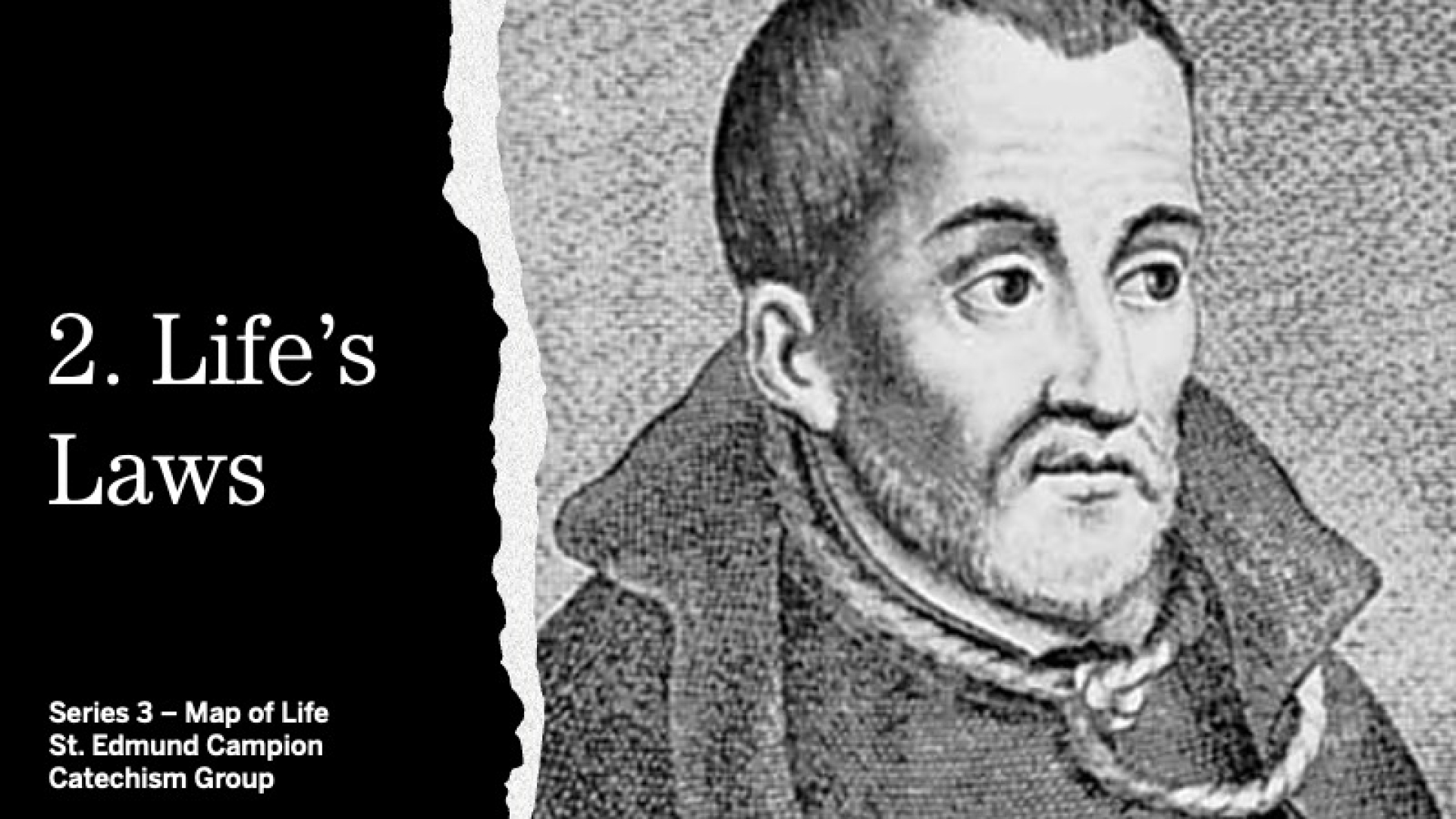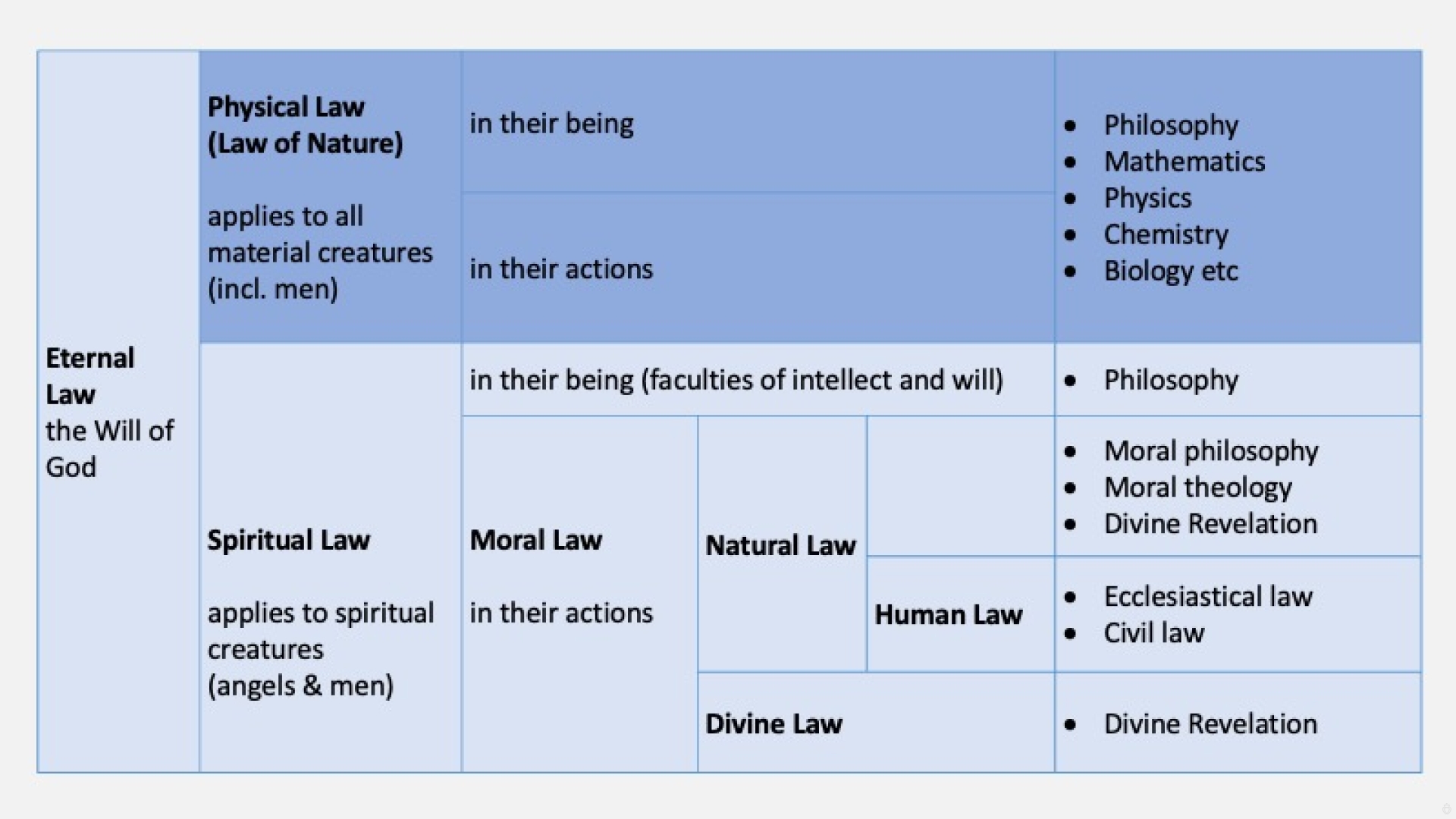Map of Life - Lesson 2

| Preparation |
|---|
| Map of Life: Chp 2. The problem of life's laws |
| Map of Life: Contents |
| Catechism Series 2: 5. Basic Anthropology |
| Catechism: Q1-10 |
| Bible: Rm 2:15 |
| Aquinas 101: Natural Law, Freedom, Law |
| Summa Theologica |
| Companion to the Summa: Chp 5. The Will of God |
| Random article: What is the eternal law, divine law, natural law, and human law? |
| Ite Missa Est: Freedom, Natural Law |
The problem of life's laws
- Recap:
Introduction: Just as we need a geographical map to know where we are, and how to get to where we want to go in the world, we also need a map of life to know where we are in relation to everything else in life, and how to get to our ultimate goal in life. This map of life is given to us by God through Divine Revelation which is preserved, interpreted and transmitted through the Catholic Church.
Chapter 1: Just as we must have faith in the geographical map-maker at the start of a journey, we must have faith in life's map-maker at the start of our journey through life. The map of life tells us
(a) what man is (a creature composed of body and soul, in the image and likeness of God by the possession of an intellect and a will),
(b) where he is destined (his finality: supernatural union with God).
- Life's laws
- Just as we need a map of life to have the a clear knowledge and purpose of life, we also need a law of life to achieve that purpose of life. This law of life can be seen as comprising two types of law:
(i) Physical laws: these are the laws of nature of the material order, such as the laws of physics, chemistry and biology. These laws are discovered by applying reason to experience (including scientific experimentation). Man cannot change these laws and must respect them for his self-preservation and betterment.
(ii) Spiritual laws: these are the laws of the spiritual order concerning both the essence and actions of intelligent creatures (ie. angels and men). With regards to voluntary actions, the spiritual laws are also called the moral law by which actions are considered right or wrong. These laws are discovered by applying reason to experience (we say that they are written into the heart of men Rm 2:15) and also by Divine Revelation (mostly in Scripture). As they are founded on the nature of men, they are immutable.
- Freedom
- The modern definition of freedom is being uninhibited in one's actions. Another definition: the power of doing what one likes.
- The traditional definition is freedom is being uninhibited in one's pursuit of perfection. Another definition: the power of doing what one ought.
The modern definition of freedom ignores the moral law and inevitably leads to disaster.
The traditional definition of freedom repects the moral law so that one's perfection (happiness) might be attained.
• see Freedom according to liberals and saints
